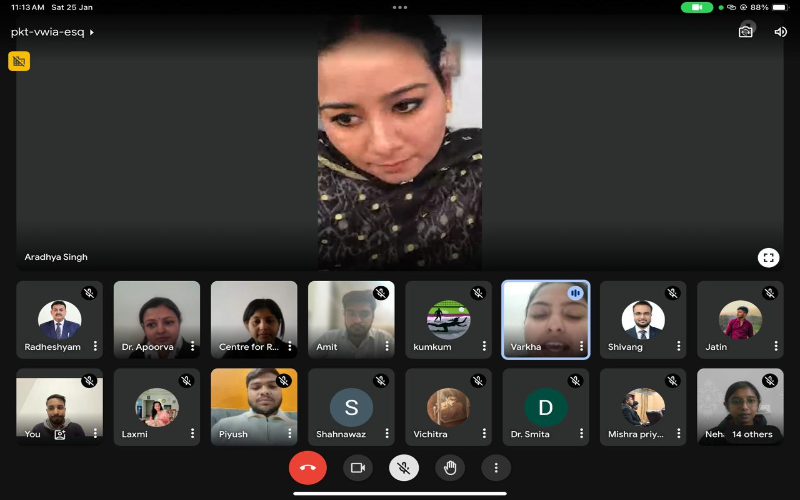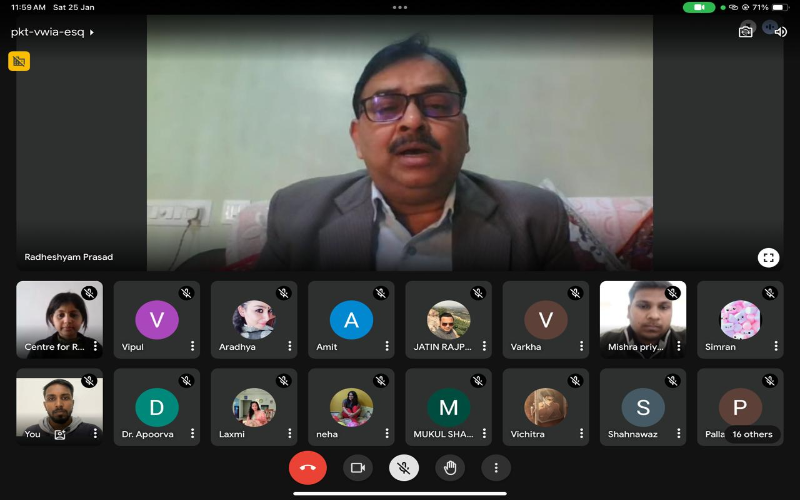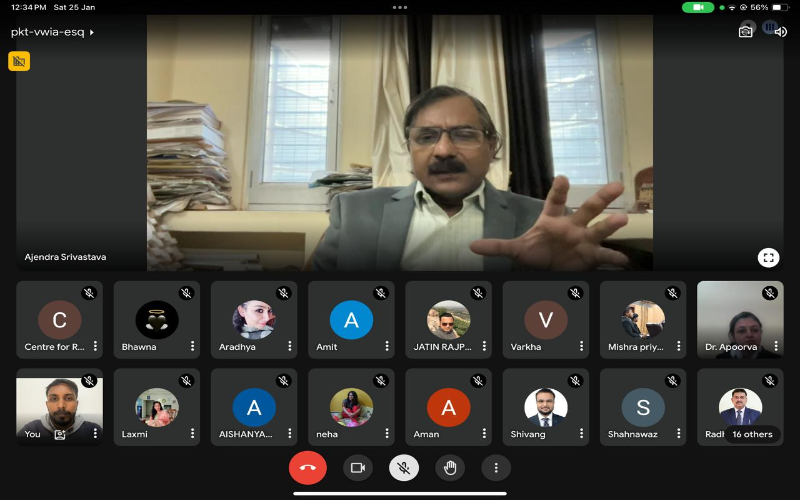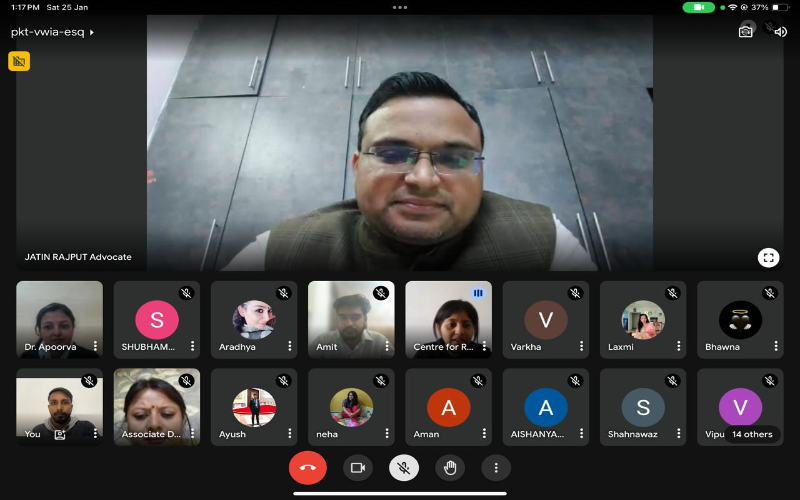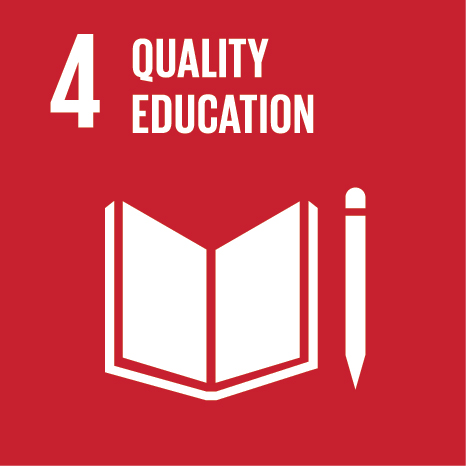Workshop on Constitutionalism and the Environment: A Legal Exploration.
Event Date: 25th January 2025
Event Brief Description:
On 25th January 2025, the Centre for Research in Environmental Law and Sustainability (CRELS), School of Law, Galgotias University, organized an online workshop titled "Constitutionalism and the Environment: A Legal Exploration." The workshop aimed to explore the intersection of constitutional law and environmental governance, discussing key topics like balancing development with ecological sustainability, the role of indigenous knowledge, and the recognition of a constitutional right to a healthy environment.
The event featured distinguished speakers, including Dr. Aradhya Singh (UPES, Dehradun), Dr. Radheshyam Prasad (Lucknow University), Prof. (Dr.) Ajendra Srivastava (BHU), and Advocate-on-Record Jatin Rajput (Supreme Court of India), who provided in-depth insights into environmental constitutionalism.
Participants engaged in thought-provoking discussions, covering legal provisions, landmark cases, and international environmental frameworks. The workshop aimed to inspire future legal reforms and foster collaboration among law students, faculty, and legal professionals on critical environmental issues.
Event Detailed Description
The Centre for Research in Environmental Law and Sustainability (CRELS), School of Law, Galgotias University, hosted an online workshop titled "Constitutionalism and the Environment: A Legal Exploration on 25th January 2025. The event brought together law students, researchers, and legal professionals to delve into the relationship between constitutional principles and environmental governance.
The workshop was inaugurated by Dr. Apoorva Roy (Convenor, CRELS), followed by a welcoming address from Dr. Moumita Sen Chakraborty (Associate Dean, School of Law). Ms. Pramadvara (Co-Convenor, CRELS) delivered the keynote address, setting the stage for discussions on how constitutionalism plays a vital role in environmental protection.
The event featured four technical sessions:
- Session 1 Environmental Constitutionalism and Indigenous Wisdom – Dr Aradhya Singh discussed how integrating traditional knowledge with modern practices can offer sustainable solutions to environmental challenges, with examples from the Chipko Movement and ecological conservation efforts in South India.
- Session 2 Fundamental Rights and Environmental Laws - Dr. Radheshyam Prasad explored the intersection of human rights and environmental laws, highlighting key constitutional articles such as Articles 14, 19, and 21, which protect environmental rights and address issues like pollution.
- Session 3 Environmental Constitutionalism and India's Path to Holistic Governance - Prof. (Dr.) Ajendra Srivastava emphasized India's role in global environmental governance and the importance of sustainable development, citing examples like the Stockholm Conference and the Rio Declaration.
- Session 4 Towards a Right to a Healthy Environment - Advocate-on-Record
- Jatin Rajput focused on the constitutional recognition of the right to a healthy environment and discussed landmark cases like Subhash Kumar v. State of Bihar and Vellore Citizens Welfare Forum v. Union of India.
- The workshop underscored the necessity of recognizing environmental rights as fundamental, in line with judicial activism and international environmental principles such as the Paris Agreement.
Event Outcome:
The workshop achieved its goal of fostering a deeper understanding of the connection between constitutional law and environmental governance. Key outcomes included:
An enhanced understanding of how constitutional rights can safeguard environmental justice.
Insightful discussions on the importance of judicial activism and public interest litigations (PILs) in protecting environmental rights.
Recognition of the need to integrate traditional ecological knowledge into modern legal frameworks for sustainable governance.
Participants left with a renewed commitment to addressing environmental challenges through legal reforms and collaborative efforts.
